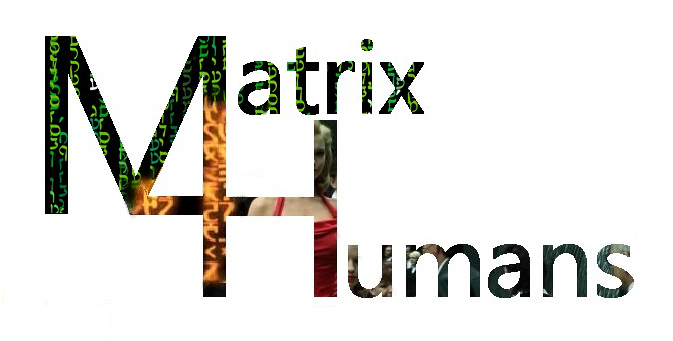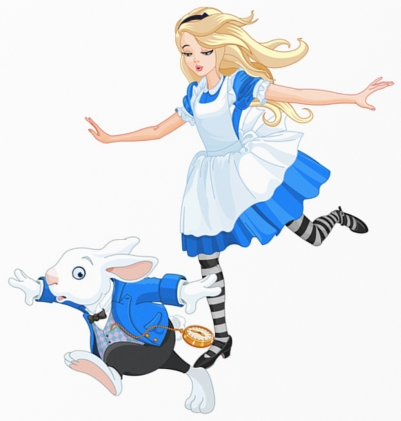One of the most confusing aspects of the Matrix story is that of the Matrix prophecy. For the past 18 years, fans have entertained the idea that it was not what Morpheus believed it to be. This idea is based on Neo’s statement in The Matrix Reloaded about the prophecy “being a lie” and “system of control.”
As we will discuss here (and as we show through several Knowledge Base articles) there are many aspects to the prophecy that are ‘hidden’ within various conversations and scenes in the Matrix trilogy. The prophecy is “alive and well.” The issue has been one of not understanding the details.
This is the first of a 2-part series. We will first present some insights into the original prophecy as well as why the aspect of ‘doubt’ entered the minds of certain characters. (You may be surprised!) In Part 2 we continue through the trilogy into The Matrix Revelations.
Three Hidden Aspects of the Prophecy in the Matrix
The first mention of the Matrix prophecy came by way of Morpheus:
When the Matrix was first built, there was a man born inside who had the ability to change whatever he wanted, to remake the Matrix as he saw fit. It was he who freed the first of us, taught us the truth: ‘As long as the Matrix exists the human race will never be free.’ After he died the Oracle prophesized his return and that his coming would hail the destruction of the Matrix, end the war, bring freedom to our people. That is why there are those of us who have spent our entire lives searching the Matrix looking for him.
There are several important concepts found within his words.
1.) This man (the first “One”) had the power to, “change things in the Matrix as he desired.”
We are not told how or why this man attained this ability. However, based on the ideas surrounding “the One” presented in our Knowledge Base, we know this person had attained a level of righteousness, particularly that of being ‘selfless.’
This is the key to bending and breaking the rules of the Matrix (as Morpheus described to Neo, when they first trained):
“The righteous person, in “touch” with the inner, pure form of all reality, is able to “shape” reality in accordance with his will, as is said: “The righteous one decrees and God realizes.”
Yitzchak Ginsburgh
This is important as it relates to the path of spiritual advancement that Neo goes through from one movie to the next, reaching the point where he does not have to dodge bullets.
2.) The prophecy states that human “freedom” is connected to the Matrix coming to an end. This seems obvious, however, (as is a key premise to what we are showing on Matrix4Humans), the Matrix is serving a purpose. It is the place where humans can choose between acting self-centered (which got them into the Matrix) or beyond themselves, away from materialism and incorrect desires. (This is the deeper meaning of Neo’s words, “The problem is choice.”)
The Matrix will end when a greater part of humanity experiences this change. This arousal from below will produce one “from above.” (Like what happened at the end of The Matrix Revolutions with Neo and the Source, only on a much greater scale.)
As we write about in several articles, The Matrix Resurrections goes beyond Neo’s elevation in personal consciousness (as experienced through the trilogy) to one of collective consciousness.
3.) The Oracle prophecied the return of the same man. There are several interesting elements here:
a. It is evident that this ‘same man’ is Neo. This relates to the concept of ‘gilgul’ (reincarnation) which the second and third movie titles relate to.
b. Despite this, when the Oracle first meets Neo, she tells him he isn’t ready to be “the One.” (Why?)
c. The arrival of this man would bring the end of the Matrix. (It has not – yet.)
This last point relates to the “faulty understanding” mentioned above. Throughout the story, we see a number of characters “jumping to conclusions.” This is especially true of the Architect. The Oracle even said that he is not capable of getting to the right answers.
The fact that the human race was not destroyed, as he said it would be upon Neo going back, proved this to be true.
Remember, the Architect is the one Neo got the idea from, that the Prophecy was not valid. This source of faulty information is behind the “fan theories” espousing the prophecy was a lie.
Why All This Doubt?
The idea of ‘doubting’ the prophecy is not only something found among the characters in the story, but is part of the prophecy as well.
This all relates to the concept of internal and external barriers that are found in the Matrix. These are an integral part of the system of “choice” found within that world of concealment. As mentioned, humans are given choice in order to bring the required repair to themselves, changing their desires from a self-centered to selflless ones.
As a famous author once wrote:
“I began to understand that suffering and disappointments and melancholy are there not to vex us or cheapen us or deprive us of our dignity but to mature and transfigure us.”
Hermann Hesse
The character who best represents the aspect of doubt, and the destruction it can lead to, is Cypher.
We encountered that in the opening dialogue of the first movie:
Cypher: We’re going to kill him, do you understand that?
Trinity: Morpheus believes he is The One.
Cypher: Do you?
Trinity: It doesn’t matter what I believe.
Cypher: You don’t, do you?
He expresses his doubt in a more subtle matter with Neo, taking on a bit of a sarcastic tone:
Did he tell you why he did it? Why you’re here. Jee-zus. What a mind job. So you’re here to save the world. What do you say to something like that?
We all know where this led, with Cypher betraying and murdering his friends. Check out his profile for more about what was behind his thoughts and actions.
Even some of the heroic characters “have their doubts” about “the One.”
Morpheus: You’ve never believed in The One.
Niobe: I still don’t.
Morpheus: Then why are you doing this?
Niobe: I believe in him.
The Surprising Source of Doubt in the Matrix
We mentioned earlier, that you may be surprised as to where doubt ‘originates’ from. The element of doubt stems from what is called the restrictive emanations within the Matrix. These attributes (as with their proactive counterparts) are ‘neutral,’ and necessary for making ‘judgments.’ However, when separated from the “path of truth,” they can manifest in negative ways, as seen in certain characters.
Interestingly, the ‘mother’ of these emanations is the Oracle. As the Architect explained, she is the intuitive program, created to give humans ‘choice’ – which opens the door for doubt.
All of this being the case, the Oracle employs doubt in a ‘positive’ manner, to provoke Neo to go further into “knowing himself.”
The Oracle: So, what do you think? Do you think you’re The One?
Neo: I don’t know.
The Oracle: (pointing to Temet Nosce sign) You know what that means? It’s Latin. Means “Know thyself”.
We see how this unfolds regarding what she also told Neo:
You’re going to have to make a choice. In the one hand you’ll have Morpheus’ life and in the other hand you’ll have your own. One of you is going to die. Which one will be up to you.
Neo then comes to a wrong conclusion based on what the Oracle said.
Neo: Morpheus did what he did because he believed I am something I’m not.
Trinity: What?
Neo: I’m not the one, Trinity. The Oracle hit me with that too.
Trinity: No. You have to be.
Neo: I’m not, I’m sorry. I’m just another guy…
Tank: Neo, this is loco. They’ve got Morpheus in a military-controlled building. Even if you somehow got inside, those are agents holding him. Three of them. I want Morpheus back too, but what you’re talking about is suicide.
Neo: I know that’s what it looks like, but it’s not. I can’t explain to you why it’s not. Morpheus believed something and he was ready to give his life for what he believed. I understand that now. That’s why I have to go.
The amazing thing here is that it is Neo’s own incorrect assessment (what he thought the Oracle was “saying”), that provoked him to go past his self-limitations (“know thyself”) in rescuing Morpheus.
The Oracle knew that this was exactly what he needed to hear:
Neo: Morpheus. The Oracle, she told me I’m…
Morpheus: She told you exactly what you needed to hear, that’s all. Neo, sooner or later you’re going to realize, just as I did, that there’s a difference between knowing the path and walking the path.
Remember how the Architect described her:
… an intuitive program, initially created to investigate certain aspects of the human psyche.
By the end of the first movie, Neo was fully on board with his ‘fate,’ with no shades of doubt to be seen:
I’m going to show them a world without you, a world without rules and controls, without borders or boundaries, a world where anything is possible. Where we go from there is a choice I leave to you.”
At this point, no one (in the movie or among the fan base) had any reason to believe the prophecy was not true. Neo’s final comments (above) simply led us to believe that everything would be resolved in a sequel.
The ‘doubt’ concerning the veracity of the prophecy would come in The Matrix Revolutions.
<< Follow the White Rabbit to the Home Page || This way to read more “Matrix Musings” >>


